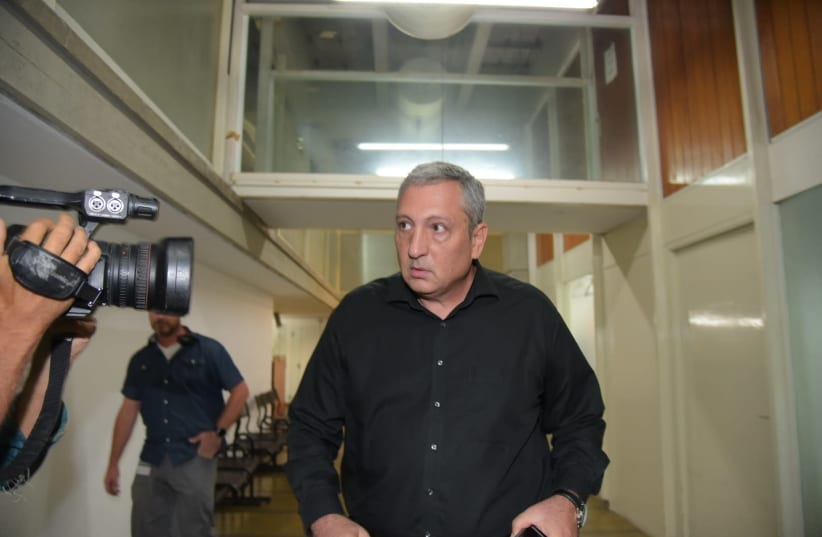There are at least seven contradictory or confusing points that state prosecution witness Nir Hefetz made in the public corruption trial of former prime minister Benjamin Netanyahu on Tuesday.
Here are the seven points that could harm the prosecution’s case, followed by how the prosecution could ill attempt to deal with these in order to keep its case on track.
According to former top aide Hefetz:
1. Netanyahu did not think at any point that he was committing media bribery in Case 4000, the Bezeq-Walla Affair.
Prosecution: Hefetz is wrong. Netanyahu fooled him like he fools even the closest of his aides and knew he was acting criminally, which was why he was careful to use messengers to cover his tracks and why he lied to the attorney-general and the police at multiple points.
2. From 2013-2018, Hefetz did not think – and still does not – that he or Netanyahu committed media bribery. He said that the arena of politicians and journalists negotiating over access and influence is a case of Sodom and Gomorrah across-the-board, and that Netanyahu should not be persecuted for playing the game.
Prosecution: Hefetz is wrong. But that is not an issue because he is only needed to show how much Netanyahu himself intervened with Walla. Other witnesses like Shlomo Filber and Avi Berger have and will testify about Netanyahu’s alleged illegal regulatory moves. Also, Hefetz’s narrative is unsurprising because he wants to frame himself personally as having only broken the law when he destroyed his cellphone, which obstructed collecting evidence.
However, Hefetz wants to argue that if he had not done this, he would have been in the clear. Paradoxically, the prosecution wants to assert that this unhelpful opinion from Hefetz proves he is telling his full truth, and that the court can rely on his factual accusations against Netanyahu (who he also declared unfit to be prime minister as of 2017.)
3. Hefetz told police that he had no evidentiary silver bullet where Netanyahu revealed the full Case 4000 scheme altogether.
Prosecution: He does not need a silver bullet. Hefetz just needs to check the boxes on his part of the case, while other witnesses check the other boxes and the prosecution connects the dots.
4. Hefetz said Netanyahu did not become communications minister just to help Bezeq-Walla owner Shaul Elovitch. If that is true, then one could argue that Netanyahu was not focused on helping Elovitch with regulatory policy.
Prosecution: Once Netanyahu was communications minister, he installed top aide Filber and ordered him to help Elovitch in “payment” for control of coverage at Walla. That was the crime. It does not matter why he originally became communications minister, and if there were multiple reasons and Elovitch was originally only one reason.
5. Hefetz answered police that he “did not remember” to 564 of their questions during his hours of interrogation. This could harm his credibility.
Prosecution: Hefetz wanted to be exact and only testify about what he remembered firsthand for sure. Moreover, he spoke to Netanyahu 10 times a day and was constantly in touch with the media, which combined with having a weak memory means none of this should reduce his credibility. Moreover, his own real-time texts and recordings help prove the case.
6. Hefetz testified that important prosecution witness and former Communications Ministry director-general Avi Berger was not credible and was often wrong on many substantive issues; and that he turned on Netanyahu only when he learned that his tenure would be short. Hefetz also said he supported the credibility of communications ministry senior official Eitan Tzafrir. All of this suggests Netanyahu did nothing wrong by firing Berger and appointing Tzafrir to a top post, where he sought to help Elovitch.
Prosecution: Tzafrir was Netanyahu’s man to do the dirty work within the ministry. Tzafrir and Filber helped Elovitch, so none of the rest of what Hefetz said about them matters even if Netanyahu did not fire Berger solely in order to help Elovitch. Firing Berger did make it possible to illegally help Elovitch.
7. Hefetz was coerced by police into being a state witness by threats to expose a romance with a woman who was not his wife, by limiting medical attention he received, poor food, sleep deprivation, and psychological threats.
Prosecution: It may all be true (the police interrogators will testify at the trial later) and Hefetz hates the police, but he testified that he still cut the immunity deal to tell the truth for other reasons – mainly to avoid jail time.

